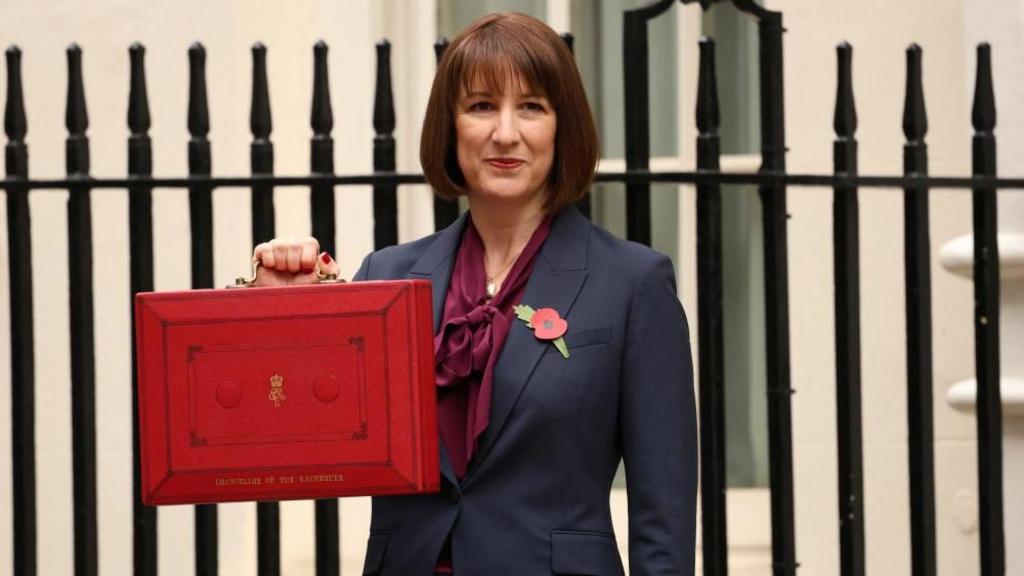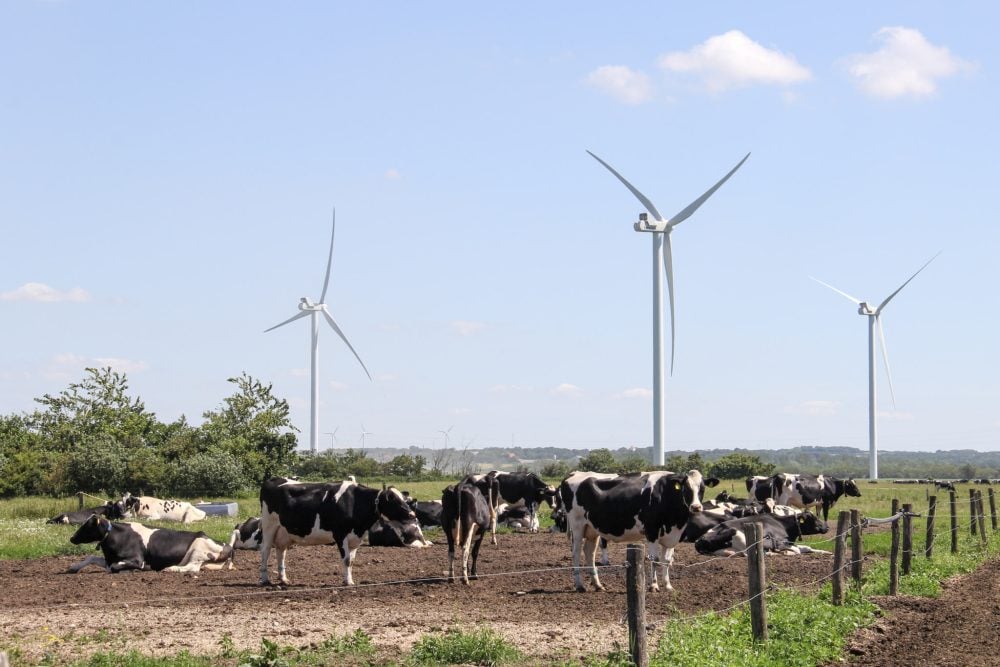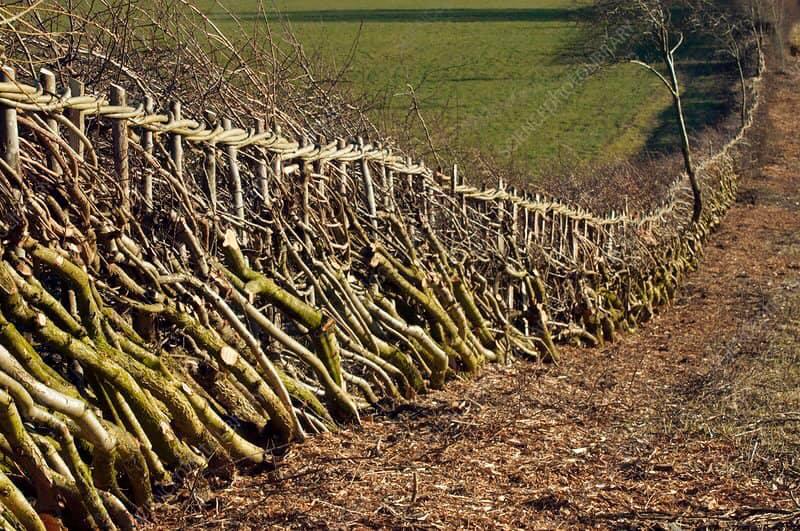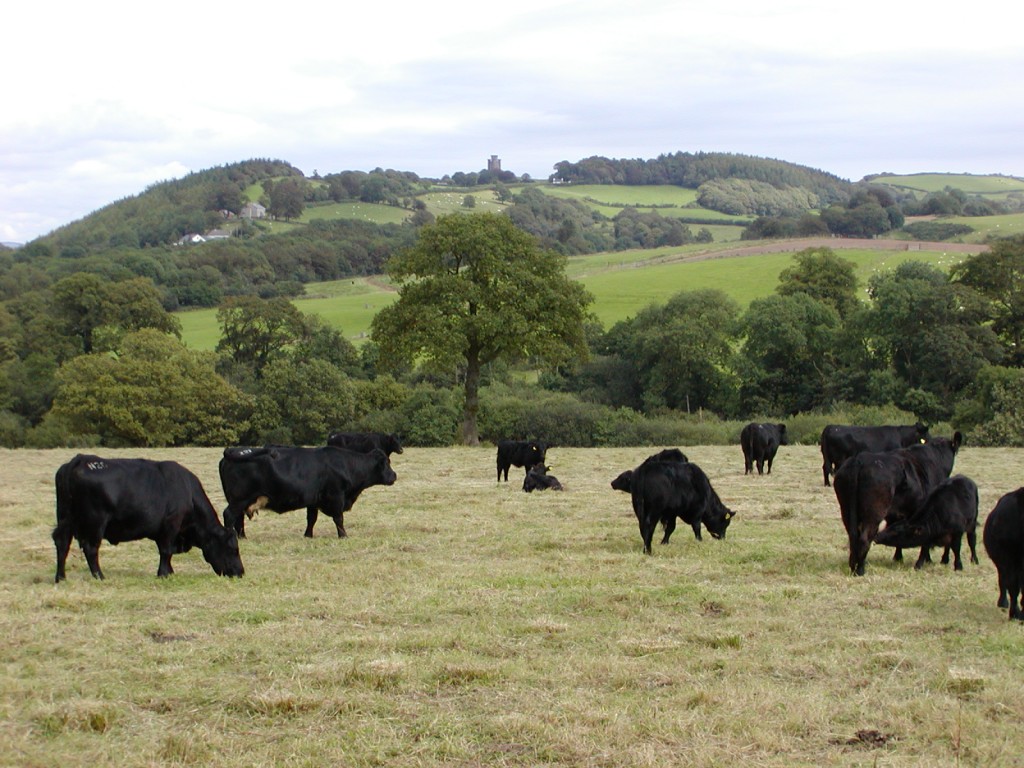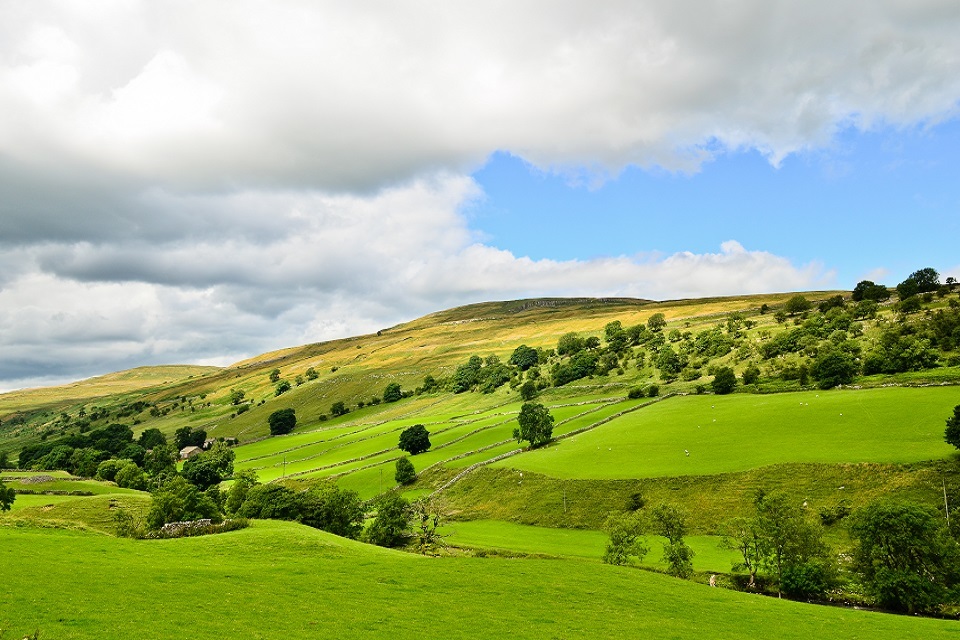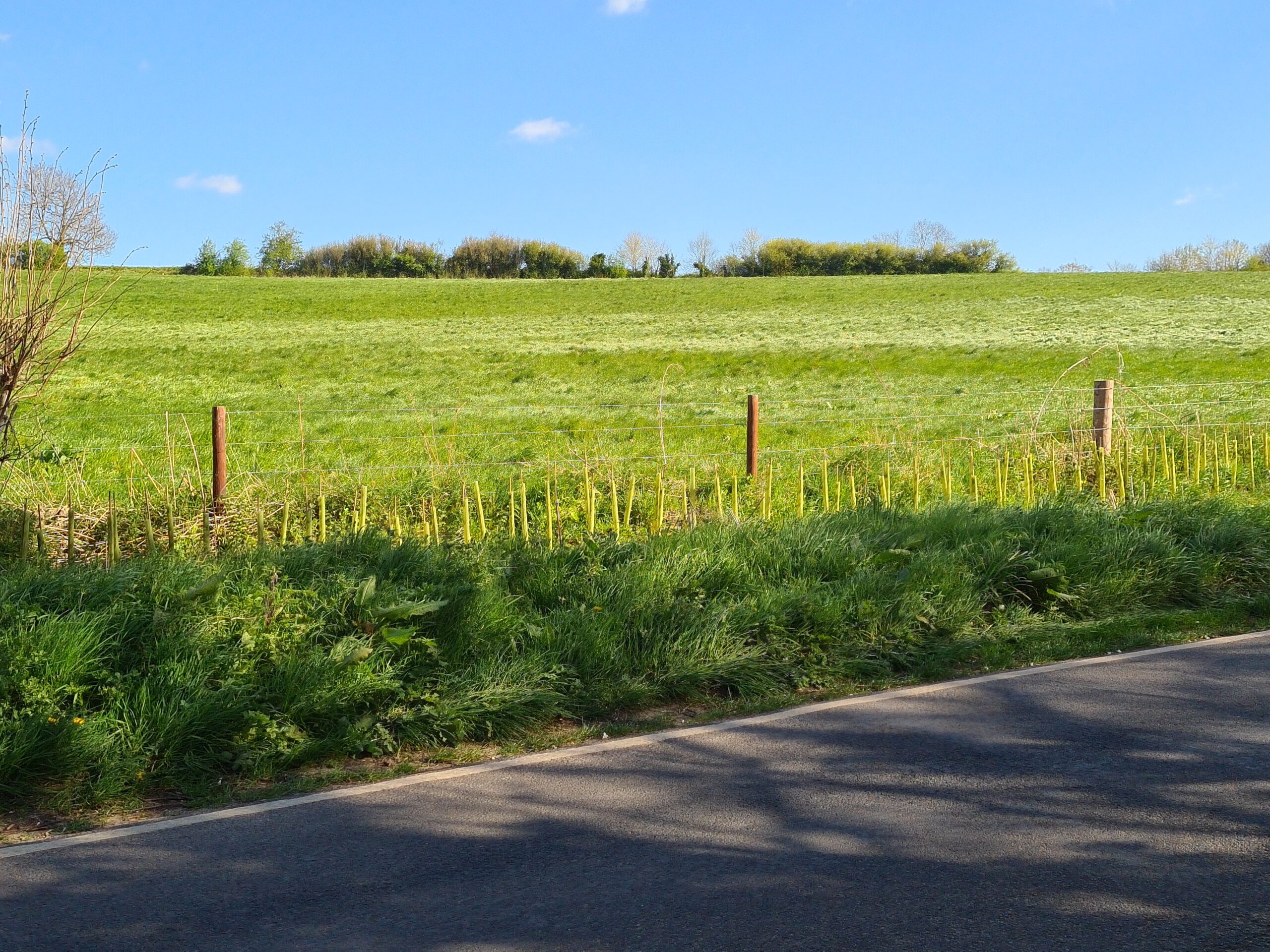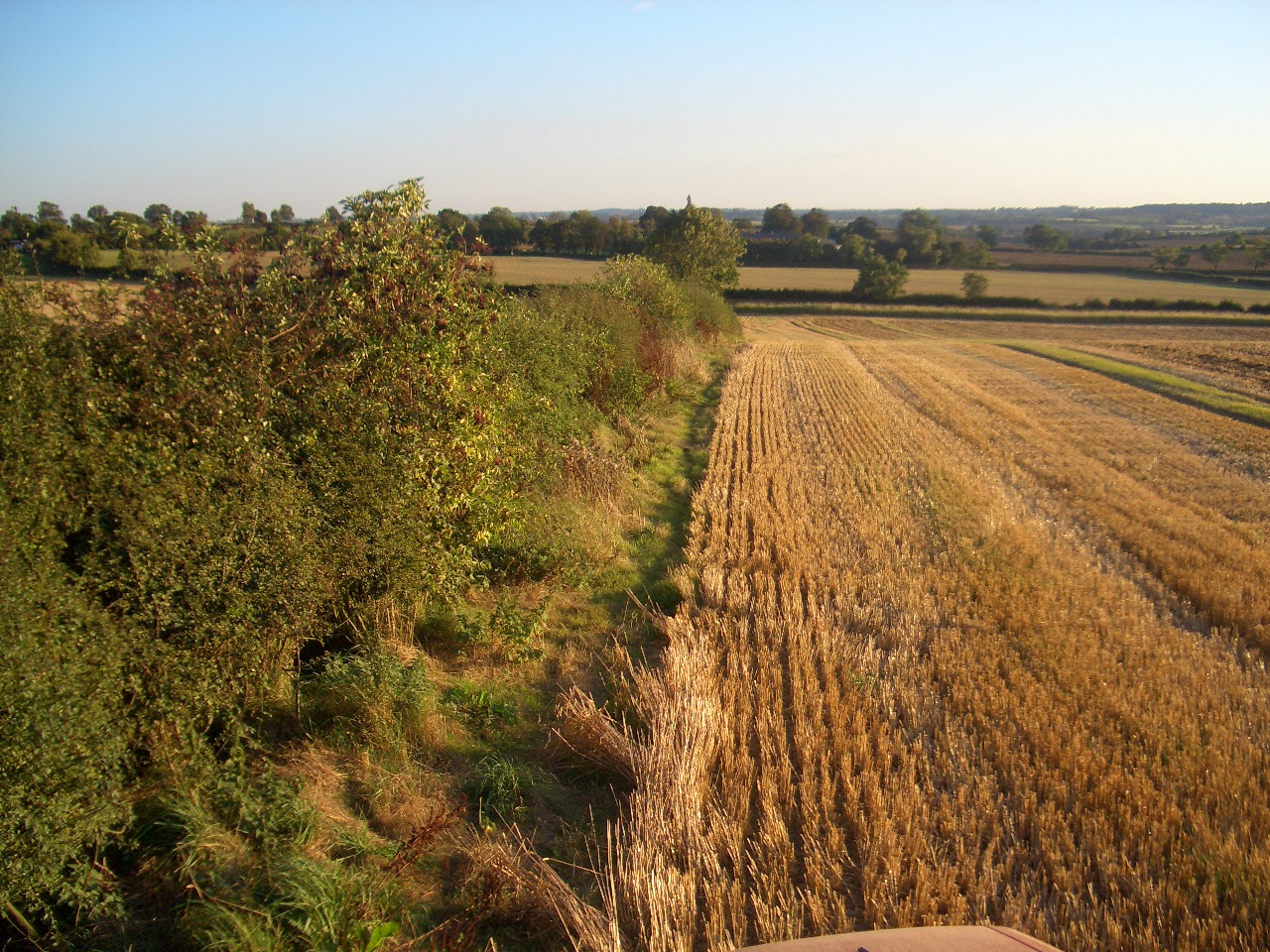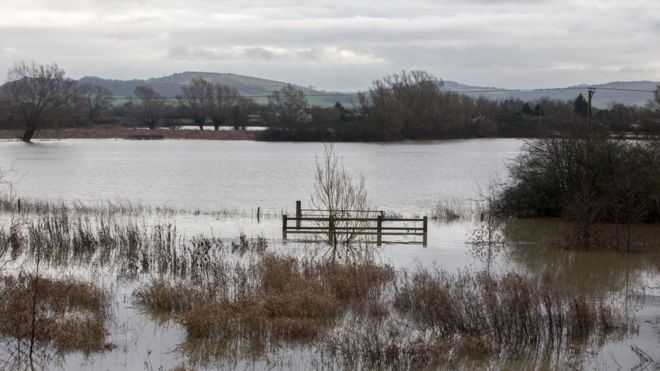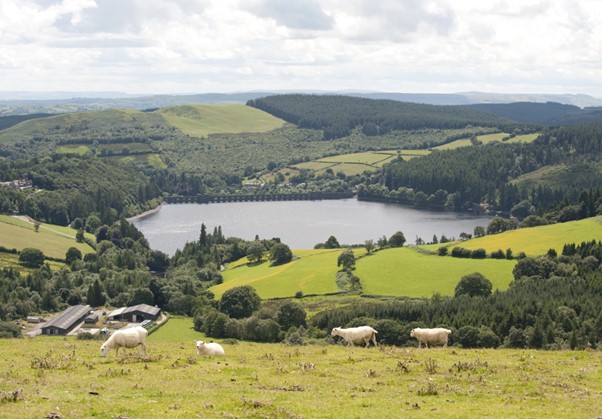Defra has released its latest Farm Business Income (FBI) figures for England. The data relates to the 2023/24 year – covering harvest 2023 and the 2023 BPS payment. They are an update of the estimates released in the spring (see https://abcbooks.co.uk/farm-business-incomes/). Although titled ‘income’ what the series shows is average profit at the farm level for a typical farm in each sector. The chart below summarises the data for the past few years – all figures are in real terms at 2022/23 prices.
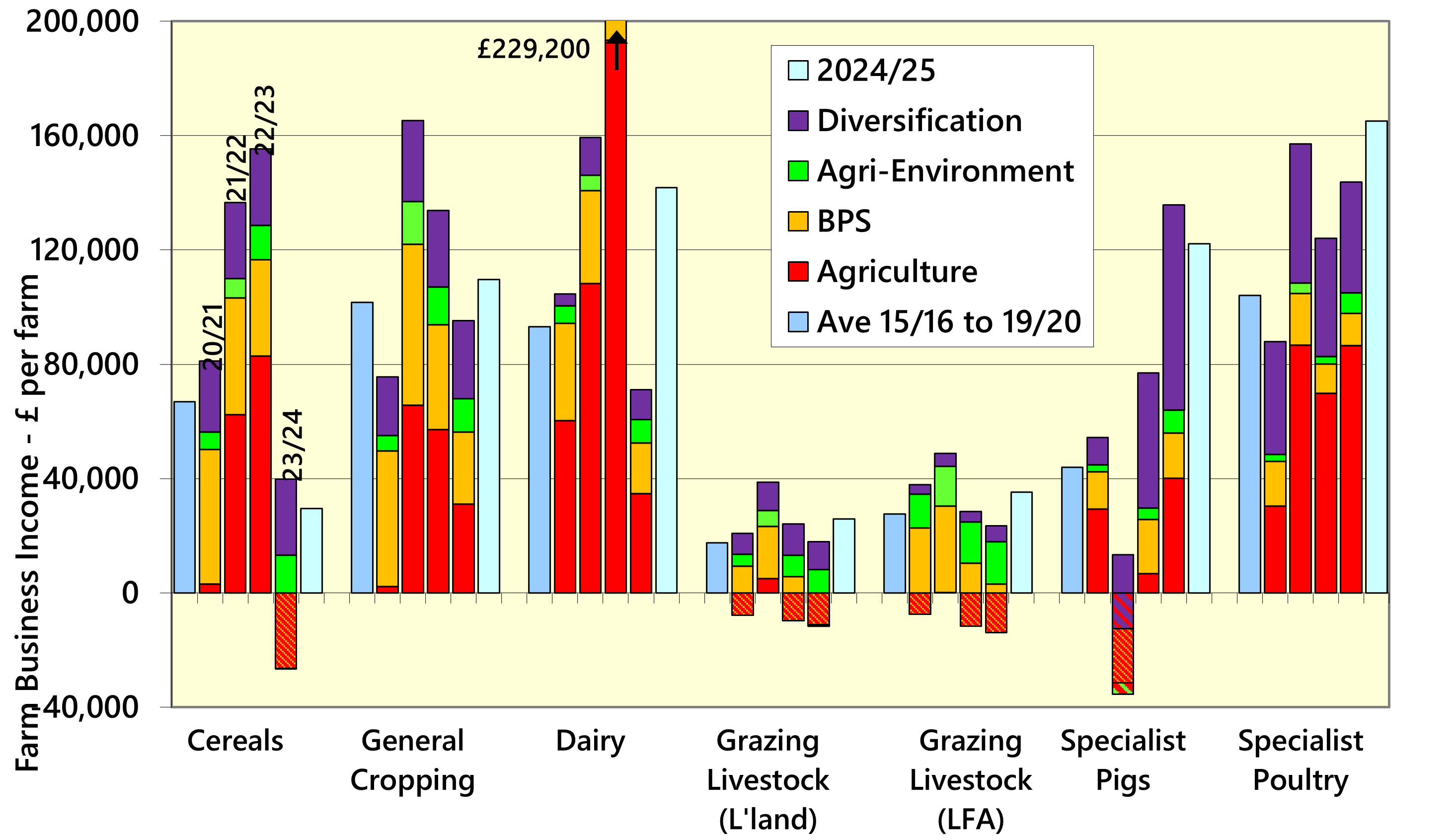
An average is first given for the five years 2015/16 to 2019/20. The data for the four following years has been split into the contribution from each of four profit centres. It shows how important subsidy income (BPS and agri-environmental income) is to the profitability of some sectors of English farming. The light blue columns are our initial forecasts for the current, 2024-2025 year.
The Cereals and Dairy sectors both experienced big decreases especially compared with the high levels seen in the previous two years. Average FBI for Cereals farms fell by 73%, compared with the year earlier; to £39,400 due to lower farmgate prices resulting in a fall in crop output of 19% coupled with higher input costs. Cereals farms actually made a £26,400 loss from its agricultural enterprise in 2023/24, requiring output from diversification (£26,500), the BPS (£26,100) and agri-environment payments (£13,200) to bring it back into profit.
On Dairy farms the average FBI was 68% lower at £70,900 with a fall in the farmgate milk price being the main driver. General Cropping farms also experienced a decline in FBI, but by a lessor extent; by almost a quarter to average £95,300. On these farms, the lower ouput from cereals and OSR was partially offsett by increases in output from potatoes and sugar beet.
The grazing livestock sector continues to struggle even with strong farmgate prices. The FBI on Lowland Grazing Livestock farms fell by 24% to £17,300. Whilst livestock prices remain high, the revenue and closing valuations were lower for sheep enterprises meaning fewer animals sold and lower stocking densities. On LFA Grazing Grazing Livestock Farms the FBI was down 12% to £23,500, with the rise in fixed costs more than offsetting an increase in agricultural output – general farming costs and net interest payments rose by 29% and 67% respectively. It can be seen that Agri-environment and BPS payments at £14,700 and £17,100 respectively are important to these types of farm.
In contrast to the previous sectors, FBI rose for both Specialist Pig and Poultry producers. The average FBI for Pigs increased by 87% to £135,800, mainly due to a 25% increase in pig output reflecting higher throughput and prices for both store and finished pigs. These farms made a £40,100 profit from agricultural activities but notable is their £71,800 profit from diversification activities which includes food processing/retailing and renewable energy. There is always a note of caution around both the Specialist Pig and Poultry figures as the samples are relatively small meaning individual farms can have a large influence on the results, this is possibly what has happened here with the diversified enterprises. Compared to 2022/23, the average FBI for Specialist Poultry Farms rose by nearly a quarter to £143,600. Despite a fall in output from broiler enterprises of 15%, livestock output overall rose by 2%, driven by an increase in output from eggs of 33% which reflected both higher prices and volume produced.
Looking to the current, 2024/25 year, first Defra estimates will be published in the spring. We have included our initial forecasts in light blue on the chart. These are likely to show further falls in the profits from Cereals farms as cereals prices remain lacklustre and yields will be lower. All other farm types are forecast to see an increase with a stronger recovery for Dairy Farms. Livestock prices remain high, likewise potato and sugar beet and the milk price has made a good recovery. The exception being Specialist Pigs which is forecast to experience a small decline as the pig price eases. The full report can be found via https://www.gov.uk/government/statistics/farm-business-income .
